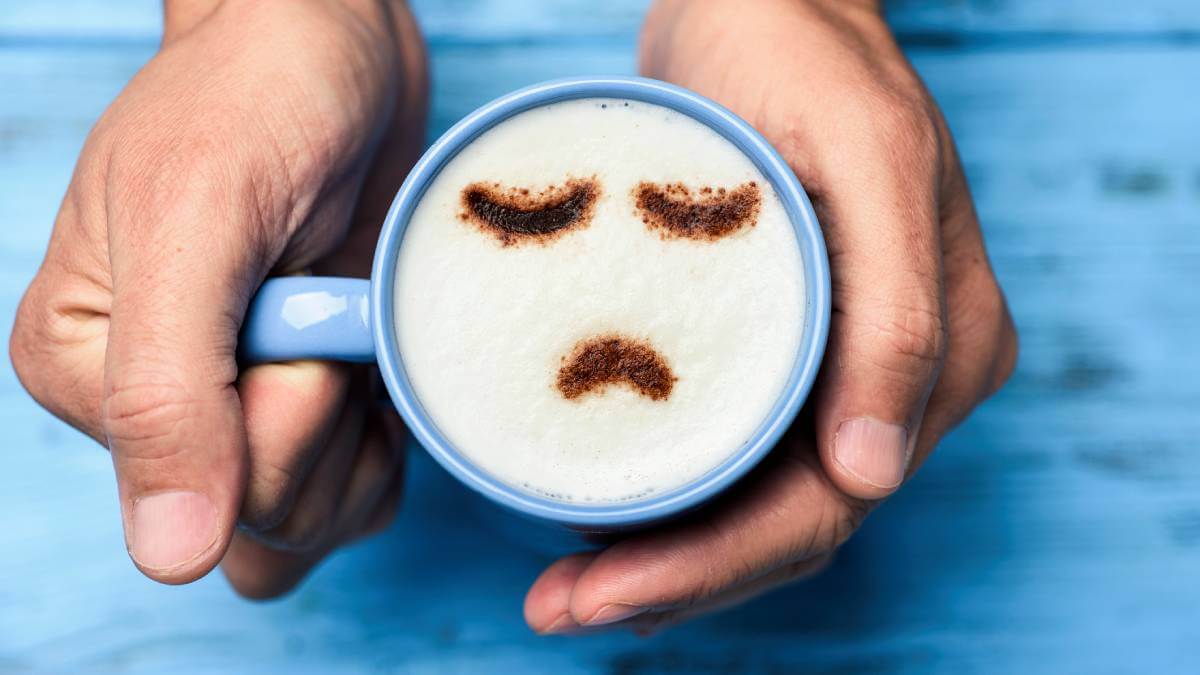For plenty of us, a strong cup of coffee in the morning is the only way we can muster the strength to roll out of bed and power through the first few hours of the day.
But if you’re a regular coffee drinker (and these days, who isn’t?) do you actually know how much of the brown stuff is bad for your body?
According to Food Standards Australia and New Zealand (FSANZ), it’s recommended that an adult over 18 have a maximum of 400mg of caffeine per day. That is the equivalent of around four cups of coffee or two energy drinks.
Very few people monitor their daily caffeine intake, and through an array of food, drink, and even pharmaceutical products, many of us are unwittingly exceeding our caffeine intake.
Statistics from Beyond Blue show that 5.6 million people in Australia have experienced anxiety disorder in their lifetime.
Exceeding the recommended caffeine intake can have a significantly negative impact on anxiety, making the underlying symptoms of stress, unease and panic feel worse.
So how exactly does caffeine work and what can you do to cut back if you’re an anxiety sufferer who regularly experiences coffee jitters? We asked nutritionist Will Hawkins to explain.
What does caffeine actually do to the body?
“Caffeine is a known stimulant. In the brain, it blocks the function of an inhibitory neurotransmitter (brain hormone) called adenosine.
“By blocking adenosine, caffeine actually increases activity in the brain and the release of other neurotransmitters like norepinephrine and dopamine. This reduces tiredness and makes us feel more alert. There are numerous studies showing that caffeine can lead to a short-term boost in brain function, including improved mood, reaction time and general cognitive function.
“In a recent study, healthy volunteers who led active lives completed three experimental trials. Two trials involved cycling on an ergometer (an exercise machine) 90 minutes after drinking 3mg/kg-1 caffeine (around the same amount as a cup of coffee) or a placebo.
“A resting (no cycling or caffeine) control trial was also completed. The intake of caffeine resulted in the exercise being perceived as less difficult and more enjoyable. Furthermore, more energy was expended with a greater fat oxidation (burnt) in the trial where volunteers had caffeine in their system, compared to the placebo exercise trial.”
Does caffeine cause anxiety?
“It’s a difficult question. There are some important negative aspects that need to be noted to avoid over consumption with caffeine.
“It’s been noted that consuming too much caffeine can lead to jitteriness, anxiety, heart palpitations and may even exacerbate panic attacks.
“The truth is, the individual difference in sensitivity in response to caffeine makes it difficult to give a recommended or optimal amount for the user.
“However, if you feel that you are sensitive to caffeine and tend to become overstimulated, I would advise you opt for a drink with less caffeine or no caffeine at all. ”
How can people who are feeling anxious cut back?
Here are some options to consider if you’re getting an anxious feeling from caffeine consumption, but still want to consume it:
1. Make sure you drink at least six to eight glasses of filtered water daily.
2. Instead of caffeine in the morning, take some warm water with freshly squeezed lemon juice.
3. To prevent irritableness, make sure your bowel movements are regular.
4. If you are tired/stressed, allow more time for sleep.
5. Take 1000mg buffered vitamin C with breakfast and dinner.
6. Make sure you exercise daily to help fight off fatigue. Even simple walking is good, around 30 minutes daily.
Some people rely on substituting coffee for real food. When you are hungry, make sure to eat and do not let your blood sugar get too low. Have some protein in the afternoon such as a handful of nuts or seeds such as almonds, pecans, walnuts, or pumpkin seeds, cooked beans, or a piece of steamed or baked fish.
Do you feel anxious after drinking too much coffee? Let us know in the comments section below.
Also read: Eight tips for brewing a healthy coffee
– With PA

